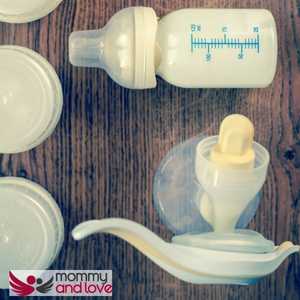You’re a new mom and you’ve just started breastfeeding. You’re probably wondering how soon milk will come in and how often you need to pump or breastfeed to keep your milk supply up
It’s totally normal to feel anxious about breastfeeding, especially in the early days and weeks. You want to make sure that you’re doing everything possible to keep your milk supply up so that your baby can continue getting the nutrients they need.
The truth is, your breasts never really empty and they work on a supply and demand basis. They are amazing and can up their production rate to change to the baby’s growing demands.
How long does it take for breasts to refill with milk after breastfeeding?
This varies from woman to woman and depends on how often you breastfeed and pump. Generally, breasts will refill with milk within 20-40 minutes after breastfeeding. You don’t need to pump or breastfeed on a schedule in order to maintain your milk supply. Instead, simply breastfeed and pump as needed in response to the baby’s cues.
Do breasts need time to refill?

Breasts work non stop and milk is produced as you feeding, before, during and after. The more you feed, the more they work. So you don’t need to leave it a set time between feeding.
If you want to wait to pump, then its best to do this after your baby has fed but before 1 hour before the next feed is due. This will ensure that your breasts have a chance to start making milk again.
Breast milk production: How supply and demand work
Your breasts are constantly making milk, but the amount of milk that they make depends on how much the baby sucks on them. The more the baby sucks, the more milk your breasts will make.
This is why it’s so important to breastfeed on demand. The baby’s sucking tells your breasts to make more milk. Breastfeeding on a schedule will not allow your breasts to make the milk that your baby needs.
Pumping also works on a supply and demand basis. The more you pump, the more milk your breasts will make. So if you are having trouble breastfeeding or pumping, try to pump more often.
How to increase milk production
Breastfeeding can be incredibly challenging, especially when milk production is low.
It’s hard to produce enough milk when you’re breastfeeding, and it can be frustrating when your baby isn’t getting the nourishment they need.
By using a breast pump, you can increase your milk production. A breast pump helps to extract more milk from your breasts, which can help to improve your overall milk supply.
In addition to pumping, you can also try to increase your milk production by drinking plenty of fluids, eating a healthy diet, and getting enough rest. If you’re feeling stressed out, try to relax and get some sleep. Stress can interfere with milk production.
Does it Matter if I Pump or Nurse?

No, when it comes to milk supply and milk flow your body does not know the different between when baby drinks and when you pump. It’s all milk removal whether through a feed or pumping session.
How much milk you produce is all to do with breast milk supply and demand, the more demands you make on it, the more milk you will make.
In the first few weeks when baby nurses, you don’t really have a reliable milk supply. Your body will begin to produce milk and the amount of milk production depends on the amount you nurse or pump. The less you demand, the less milk production. So increasing milk production is much to do with increasing demand either via nursing or pumping.
If you are genuinely worried about a low milk supply following the baby’s birth, then speak to a lactation consultant who can help with your breast milk supply and milk flow. The first few weeks is always hard and whilst you might feel you have a low milk supply, actually as long as you have a healthy baby and baby’s growth is fine don’t panic!
Protecting your breast milk production in the first month
Now that you have a baby, it is important to take care of your body and protect your milk production. Here are some tips to follow in the first month after delivery:
1) Drink plenty of fluids, especially water.
2) Eat healthy foods. Include plenty of fruits, vegetables, and whole grains in your diet.
3) Get plenty of rest.
4) Avoid caffeine and alcohol.
5) Pump or nurse frequently.
6) Wear a supportive bra.
7) Take a multivitamin.
8) Drink sage tea.
9) Practice relaxation techniques.
10) Get enough exercise.
11) See a lactation consultant if you have problems nursing your baby.
Following these tips will help you protect your milk production and ensure that you are able to nurse your baby successfully. Remember, it takes time to establish a good milk supply, so be patient and don’t give up. With a little bit of effort, you can create a healthy breastfeeding relationship with your baby.
Breastfed babies tend to drink as much milk as they need, on top of this you can express milk to help produce more. Always make sure to swap sides and never feed from the same breast in a row. Mom’s milk is increased by baby’s demand so always follow baby’s lead.
What happens if my baby doesn’t get enough milk?
If your baby isn’t getting enough milk, he or she may become dehydrated and/or malnourished. Symptoms of dehydration include a decrease in urination, a decrease in tears, a lack of energy, and a lack of appetite. Symptoms of malnutrition include a failure to thrive (a lack of growth), anemia, and a decrease in muscle mass. If you think your baby isn’t getting enough milk, talk to your doctor. He or she may be able to help you increase your baby’s intake.
Mom’s breasts are never truly empty and whilst it might feel like you have no milk in them, there is usually milk stored even when baby removes a lot! Babies rarely completely empty all the milk from nursing mothers. As long as you remember to switch sides and baby is gaining we
How fast does breast milk regenerate?
Generally, breast milk is always refilling and milk-producing cells continually produce milk. If you want to increase the milk you are making then you can pump, either by hand express or breast pump. Breastfeeding works by refilling as soon as you remove milk from the breast.
When should I be concerned?
If you baby is failing to thrive then you should seek specific medical advice. Failure to thrive includes failure in gaining weight. In the early weeks your baby may fall asleep during the nursing session so its important to keep them away until they have had a significant amount of milk.
Take Away on how long does it take breast to refill
Your breasts will start to replenish the milk during the feeding session and there should be available milk once baby is ready for it. If you are suffering with supply issues then try pumping to increase the amount of milk you create. The more milk needed, the more your body makes.
Enjoy your breastfeeding journey mama!

This article was written by Sandra Baker – full time writer and the mother of four amazing kids (including twins!)
She’s also a breastfeeding counselor and has spent years helping new parents learn how to care for their children. When she’s not writing or caring for her children, Sandra likes to spend time reading and taking walks with her husband.




